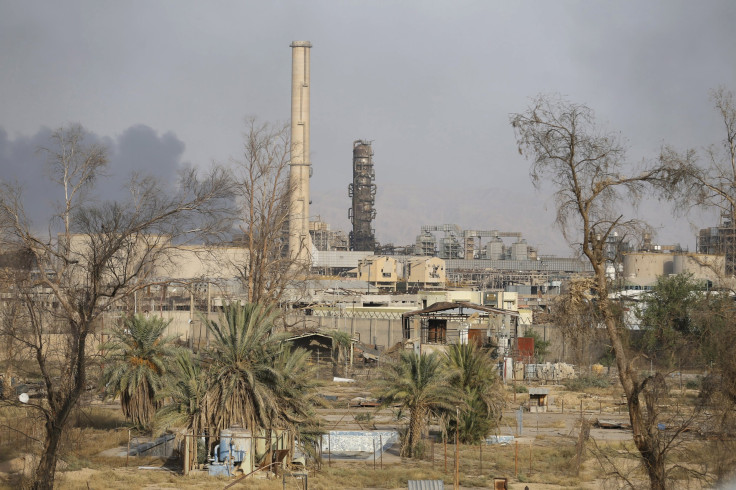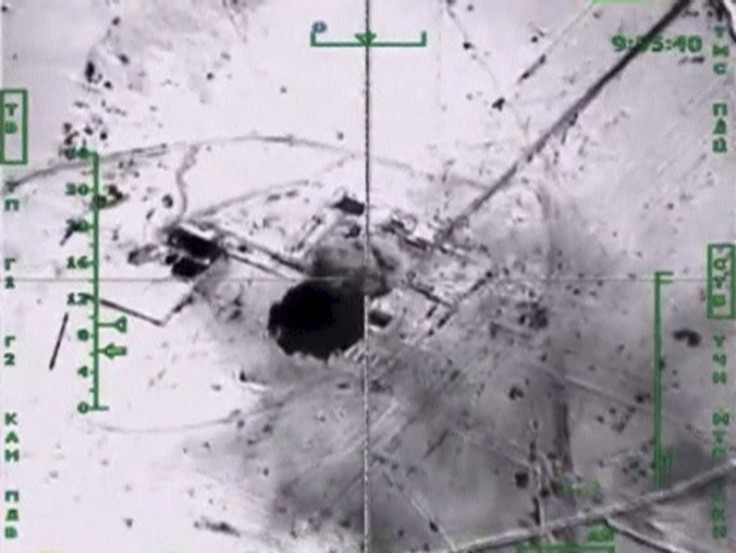Is Turkey Buying Oil From ISIS? After Downed Plane, Putin Slams Islamic State's Black Market Fuel Sales

The fact that Turkey shot down a Russian plane is not the only reason Russian President Vladimir Putin is furious. Since the jet fighter was downed Tuesday near the Syria-Turkey border, Putin has reiterated concerns -- already raised by other countries -- that Turkey has been buying oil smuggled from the Islamic State group.
The terrorist organization, also known as ISIS, has wrested control of oil fields in Iraq and eastern Syria, and has managed to keep production up despite both Russian- and American-led airstrikes against those targets.
"[ISIS] has big money, hundreds of millions -- or even billions -- of dollars, from selling oil," Putin said Tuesday, Russian news agency RT reported. "In addition, they are protected by the military of an entire nation. One can understand why they are acting so boldly and blatantly."
Turkey is frequently cited as one of the primary destinations for ISIS' oil. As a result, tensions between Russia and Turkey over the matter might seem inevitable. Russia's own economy has been hurt by a drastic drop in global oil prices -- by more than half in the past year, to less than $50 a barrel -- and by Western sanctions for Russia's involvement in the conflict in Eastern Ukraine. Oil is vital to Russia's economy; more than half of its budget and a quarter of its GDP come from producing and exporting oil and natural gas.
This month the Guardian reported that ISIS controlled about six locations that produced oil. The group reportedly sold the oil to Kurdish traders in Iraqi Kurdistan, who in turn sold it to traders in Turkey and Iran.

In June 2014, Ali Edibogluan, a member of parliament with Turkey's main opposition Republican People’s Party, said that ISIS had smuggled $800 million worth of oil into Turkey from Syria and Iraq, Al Monitor reported. He pointed to the Rumaila oil fields in northern Syria as well as those near Mosul, Iraq, saying that the group had laid pipes that allowed it to "transfer the oil to Turkey and parlay it into cash." Edibogluan added, "Turkey’s cooperation with thousands of men of such a mentality is extremely dangerous."
Russia has recently sought to destroy the infrastructure that allows ISIS to transport and sell oil. The Russian air force said last week it had destroyed about 500 fuel tankers, "which greatly reduced illegal oil export capabilities of the militants and, accordingly, their income from oil smuggling,” said Col. Gen. Andrey Kartapolov, spokesman for Russia's General Staff, RT reported.
Oil generates about $40 million a month in revenue for ISIS, the U.S. Treasury Department has estimated, the New York Times reported in mid-November. Its ability to rake in funds by selling oil on illicit markets comes from taking advantage of a "long-standing and deeply rooted black market," said David Cohen, U.S. undersecretary for terrorism and financial intelligence, as quoted in the Financial Times in October 2014.
#ISIS Control Over 79% of #Syrian Oil&Gaz Fields
http://t.co/UHf13B7pBQ pic.twitter.com/vAeh1y7MoH
— aboahmad (@Cpt_aboahmad) May 25, 2015The tensions between Turkey and Russia come amid troubled negotiations over TurkStream, a pipeline that would have transported Russian natural gas into southern Europe by way of Turkey. Talks for that began to fall apart in October, when Gazprom, Russia's state-owned energy company, said it would cut the amount of gas going through the pipeline by half, delaying the pipeline's opening until the end of 2017. It decided to make the cut in order to divert part of the gas supply to a separate pipeline that would not go through Turkey and that it planned to expand.
"Turkish motivations to secure TurkStream are fairly urgent, as domestic energy demand is surging and internal energy sources are extraordinarily limited," according to a recent analysis of the situation by the publication Global Risk Insights. "Turkey also recognizes Russia’s desperation and is now likely to seek lucrative price cuts on Russian gas imports in exchange for greenlighting the pipeline," it added.
Of the crude oil Turkey consumed in 2014, about 27 percent came from Iraq, 26 percent from Iran and 13 percent from within Turkey, according to the U.S. Energy Information Administration. About 3 percent was imported from Russia.
© Copyright IBTimes 2025. All rights reserved.






















